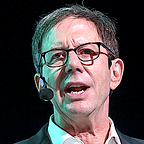Hey GOP You Can’t Have Your Court and Eat it Too
In the realm of jurisprudence, the Supreme Court of the United States (SCOTUS) holds the power to interpret the Constitution, thereby giving it the authority to set landmark precedents, such as Roe v. Wade, First Amendment rights, Affirmative Action, and School Debt Forgiveness. With its ability to shape and mould the nation’s legal framework, one must question whether this authority extends to equitable enforcement of child support, First amendment rights, reconsideration of favoritism in university admissions, and the reformation of college funding for underserved populations. Should the courts not only ensure justice, as it does in other matters of national importance, but also equity and fairness?
Consider first, the issue of child support in the overturning of Roe v. Wade. At the heart of that 1973 decision, lies the affirmation of a woman’s right to choose what happens to her body, including the right to terminate an unwanted pregnancy. If this ruling can be challenged or overturned, then the Supreme Court must also address the imbalance that allows men to abdicate financial and other responsibilities once a child is born, while women often bear the brunt of child-rearing and its costs. A ‘pro-life’ stance that does not consider the life of the child post-birth seems woefully incomplete. It is an ethical if not an moral imperative, therefore, that any man involved in the conception of a child should be obligated to provide child and other support — a child ideally needs input from both its mother and father — until that child reaches adulthood.
Then, consider the First Amendment religious right to refuse service to someone because of LGPTQ status. What about the religious right of someone who believes in a loving and accepting God to refuse service to someone who goes against that by being anti-LGPTQ, anti-same sex marriage, anti-Black?
Next, consider the issue of favoritism in university admissions, which touches on the principles underlying affirmative action. Affirmative Action policies were instituted to correct historical systemic inequities and provide underrepresented groups with access to opportunities. But the system of legacy admissions and donor favoritism appears to subvert this intention, perpetuating privilege among certain demographics while others struggle for fair representation. If the Supreme Court has the power to challenge affirmative action policies, then it should also critically examine the unfair advantage offered to legacy students and children of large donors.
Lastly, let us delve into the issue of college funding for underserved populations, a matter related to school debt forgiveness. If the Supreme Court has the authority to question policies aimed at reducing student loan burdens, burdens that can continue for decades and eviscerate the unalienable rights to life, liberty (freedom from decades long indebtedness) and the pursuit of happiness, then it should also be duty-bound to address the glaring inequities in access to higher education. This is particularly pertinent for marginalized communities, where the cost of college often constitutes an insurmountable barrier. Many nations around the world have made higher education a right for all citizens, regardless of their socioeconomic status. Should the U.S. not aspire to do the same?
If the Supreme Court has the power to rule on issues like Roe v. Wade, First Amendment rights to refuse service, Affirmative Action, and School Debt Forgiveness, it should equally address other critical areas of social and economic justice and fairness. The power of interpretation bestowed upon the Court ought to be applied consistently and broadly to ensure equity.
To invoke the principle of ‘an eye for an eye,’ the Supreme Court’s gaze should encompass not only high-profile, issues favoring the “have’s” but also those areas of systemic injustice and unfairness towards the “have not’s” that persist in our society. In this manner, the Court can help foster a more just and equitable nation, fulfilling its intended role as a cornerstone of American democracy.
